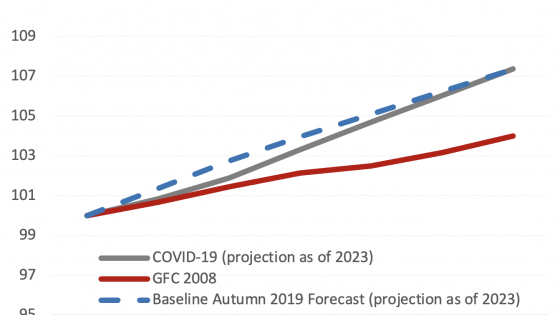DP3232 Fiscal Stabilization Policy in a Monetary Union with Inflation Targeting
The interaction between a common monetary policy targeting inflation and decentralized fiscal policies aiming at output stability is considered in a setting taking into account interdependencies between countries running via trade links and the common monetary policy. The setting is sufficiently general to capture various effects of fiscal policy, and to allow for both demand and supply shocks, which can be either aggregate or idiosyncratic. It is shown that a policy mix problem arises between the common monetary policy and the decentralized fiscal policy, which results in an inappropriate stabilization of shocks. In the case of aggregate shocks the inefficiency in responding to shocks is increasing in the number of member countries, while it is decreasing in the case of idiosyncratic shocks. Numerical illustrations show that the cost of non-cooperative fiscal policies can be large in the case of aggregate shocks, while they are small in the case of idiosyncratic shocks, provided that fiscal policy can be flexibly adjusted to cope with idiosyncratic shocks.


